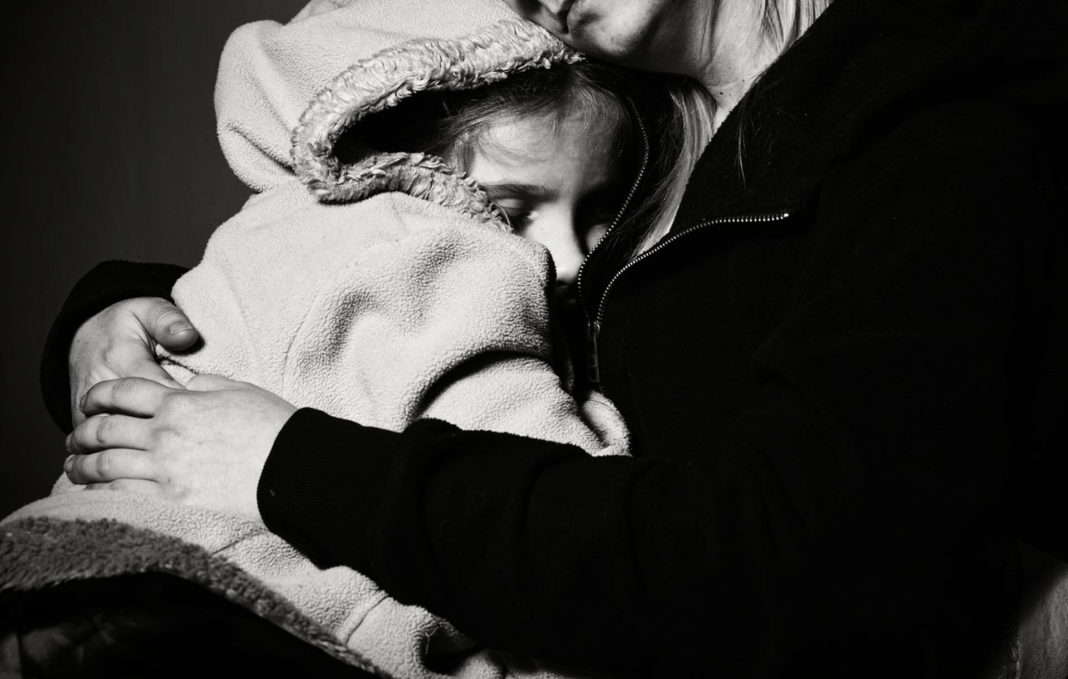“My uncle sexually abused me,” said the pale young man sitting begging on a Cork street. “Speaking out cost me everything.”
I won’t tell you the young man’s name, or his precise age, and I won’t tell you his home town, or the area of Cork’s city centre in which he had until last week, a squat. I don’t want to drop any details which might make an already vulnerable young man identifiable.
It was freezing cold in Cork last Friday night. It had rained earlier, leaving the pavements wet. The streets were bright, and alive with well-wrapped late-night shoppers, and the Christmas lights sparkled overhead. Every breath steamed in the air and every sheltered doorway on Patrick Street seemed to have at least one person swaddled in a sleeping bag, lying on a bed of cardboard.
The young man shook my hand, his grip weak and cold. He kept calling me ‘Sir’, despite my asking him to use my first name. He told me his childhood had been chaotic, that his parents had both suffered from alcoholism and that he’d been put in foster care. During that time, his uncle began sexually abusing him. Complaining about this led to a huge rift in his family. Further, he claimed, being a member of the Travelling Community meant that his talking to the Gardai made him an outcast. His uncle got jail, he told me, but for standing up and speaking out against his uncle’s abuse, the young man had lost not just his family but his entire community.
I took notes as I spoke with him – with his permission – and I apologised for intruding. “No, no”, he said, “it’s good to have someone to talk to. Most people don’t stop and talk. They leave money” – and he said he was grateful, of course – “but it’s nice to talk to someone too, you know?”
He told me he isn’t a drug addict or an alcoholic, but he does take a drink. He was living in a squat until last week, when he was awoken in the night to find he was being robbed by two men he recognised as fellow homeless people.
“They took my phone – an auld ready-to-go – and I begged them to leave me the SIM card because it had all my contacts. They wouldn’t listen to me. One of them had a broken bottle and he tried to stab me in an uppercut, and they said they’d kill me, so I had to get out. I walked the streets in the middle of the night with my sleeping bag under my arm and I slept outside Penney’s because they’ve cameras.
“That’s why people sleep on the main street, because there’s security cameras and you’d be some bit safer.”
As we chatted, I was feeling progressively frozen. My feet were already like blocks of ice. I had forgotten to wear gloves and my fingers were struggling to write in my notebook. As we talked, a man and woman in their twenties stopped and the woman gently handed him a cardboard cup of tea and suggested he warm his hands on it. She gave him sugar sachets and little tubs of milk too. She apologised that it wasn’t much and began to move away. Then, almost as an afterthought, she put a fiver in the empty cup on the pavement in front of him and she headed away.
I recognised her actions. Many’s the time I’ve done something similar. You don’t want to intrude on another person’s privacy or misery, and you’re embarrassed that you can only afford a few quid, and maybe you feel ashamed too because you know you’re copping out by throwing a handful of change at a person in serious trouble. Perhaps there’s also a sneaky, horrible part of yourself that you’d never own up to which despises those worse-off than you and you want to get away as quickly as you can.
The young man I spoke with offered a kinder perspective on humanity.
“I think people are very busy in their own lives, you know, people have a lot going on,” he said, once he’d finished thanking the young woman for her kindness. “But most people you’d meet are fierce decent. Most people are sound.”
As I left, he told me he has a social worker and she couldn’t be sounder and hopefully she’ll be able to get him sorted for a place to stay soon. In the meantime, he was begging for the price of a hostel.
Cork Simon provide emergency beds for an average 53 people per night, with their Winter Night Shelter taking in 11 or 12 extra people per night. Exact figures are not available for how many people are unable to avail of shelter, but I met 10 people outside Simon late one recent Friday night and they told me they could not get in.
Earlier this month, Eileen Gleeson of Dublin’s Homeless Executive caused controversy when she said long-term homelessness results from years of ‘bad behaviour’ could not be solved by volunteers.
“(W)hen somebody becomes homeless it doesn’t happen overnight, it takes years of bad behaviour probably, or behaviour that isn’t the behaviour of you and me.”
She said volunteer groups which gave only food and clothing to the long-term homeless were allowing them ‘to continue with the chaotic lifestyle they have’, highlighting the need for other interventions.
I’ve spent a few evenings out in Cork lately with the volunteer group ‘Helping Hands Homeless Action Group’ and the Christian group ‘Hope for the Homeless’. They might not be fixing long-term homelessness – how could they? – but without the compassion and kindness of volunteers, homeless people would face an even colder and hungrier night on our streets.
I thought of Eileen Gleeson’s comment about homelessness being caused by ‘bad behaviour’ when the young man told me about his uncle’s abuse. In his case, she’s right, even if she doesn’t know what she’s talking about. It just wasn’t his bad behaviour.








